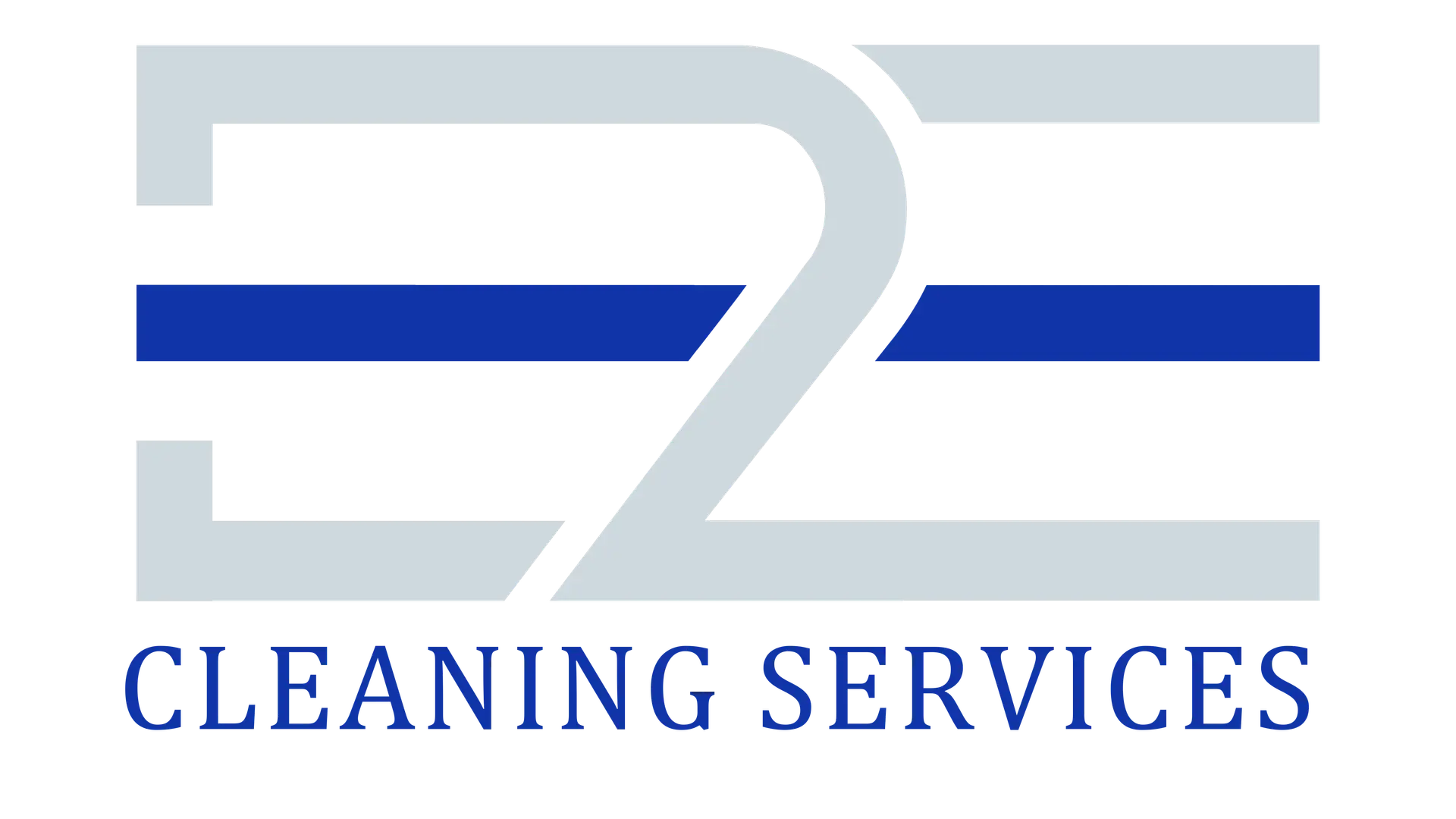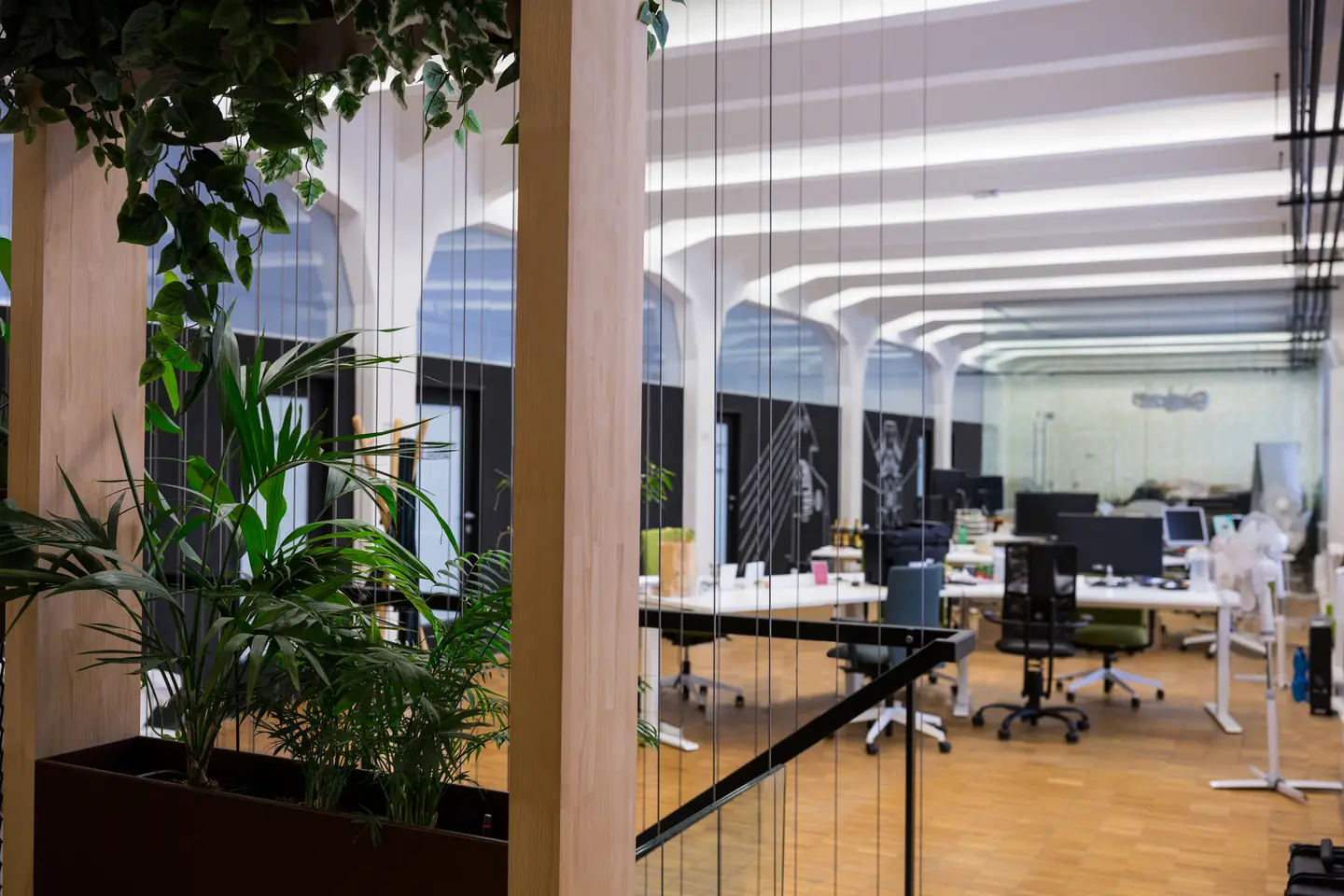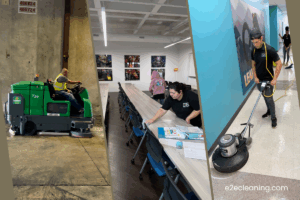Summer months in Florida present unique challenges to facility managers and building owners. Normal air temperatures are usually above 90°F , humidity is often above 80 % and thunderstorms are frequent in the afternoon, all contributing to the wear and tear at a rate that cannot be countered by regular cleaning procedures.
These pressures are further compounded by the influx of tourists which constitutes about 35 % of the annual visitors to the state. Five special janitorial actions that are specifically designed to deal with these seasonal issues are presented in the following article.
1. Enhanced HVAC System Support
During summer, the intense heat in Florida puts heating, ventilation, and air-conditioning (HVAC) systems under a lot of pressure, forcing them to work far beyond the usual standards in order to maintain comfortable indoor environments. Poor maintenance triggers the build-up of dust, debris and microbial contaminants in the system and thus degrades the performance and indoor air quality.
The maintenance process is a thorough one that is required to maintain the HVAC performance. The best practices include the following strategies:
- Regular filter changes: Filters are to be changed every 2-4 weeks during the summer months as opposed to the old 3-month cycle. Avoiding clogged filters helps to eliminate airflow restrictions that consume more energy.
- Frequent cleaning and sanitation of coils: Coils of evaporator and condenser must be cleaned monthly to get rid of biofilm and dirt that reduces efficiency. Antimicrobial treatment of commercial grade should be used to reduce the incidence of algae and bacterial growth especially in humid areas.
- Ductwork inspection: Day porters are to conduct weekly visual inspection of the accessible ductwork to check condensation that may cause water damage and mold growth. Any water problem should be addressed immediately by the professionals.
- Maintenance of condensate lines: These are critical drainage parts, and they must be flushed every two weeks using algaecide solutions to avoid clogs that may cause system breakdowns and water damages.
The application of these maintenance procedures has quantifiable positive results: systems that are well-maintained use 15-20 % less energy during peak summer demand, increase equipment life by 3-5 years, and reduce emergency repair calls by a large margin. Moreover, clean systems distribute healthier air, and thus, minimize summer-related respiratory complaints by building occupants.
2. Aggressive Humidity and Mold Prevention
The humidity of Florida during the summer is the best environment of mold and mildew that may ruin surfaces and cause health risks. Prevention requires special cleaning procedures as well as environmental controls.
The best humidity control measures are:
- Moisture mapping: Professional janitorial crews are advised to develop facility moisture maps that mark the high-risk locations (entrances, bathrooms, kitchens, below-grade spaces) that need extra care.
- Special surface treatment: High risk surfaces are to be treated with antimicrobial sealants to prevent mold growth, every three months especially in bathrooms and food service areas.
- Strategic dehumidification: Portable commercial dehumidifiers are to be used in the problem areas and the moisture levels are to be checked by the day porters on a daily basis. Relative humidity should be maintained at a level of less than 60 % to prevent the growth of microbes.
- Increased bathroom procedures: Bathrooms will be disinfected twice daily using quaternary ammonium compounds that are specially designed to be used in humid areas. Special focus must be given to grout lines, ceiling tiles, and plumbing fixtures areas.
Expert humidity control services that prevent costly mold damage. Click Here
3. Intensive Window and Natural Light Management
The intense summer sun in Florida has its benefits and problems to facility managers. A strategic window maintenance strategy allows one to control the cooling costs effectively and to maximise the use of natural light.
A good strategy of Window Management is:
- Strategic Cleaning Schedules: The exterior windows should be cleaned twice or thrice a month in the summer season and special care should be taken to ensure that the salt spray, pollen and storm debris that reduces the transmission of light and causes unsightly streaks are removed.
- Film Inspection and Maintenance: UV blocking window films need monthly inspection to verify whether it is bubbling or peeling due to the strong summer heat. Any damaged films should be immediately replaced to maintain the energy efficiency.
- Seal Verification: The window seals should be checked every month in the summer because the heating and cooling effect may cause gaps where humidity can enter and increase the cooling loss.
- Solar Control: Day porters should be instructed to adjust the position of adjustable blinds and shades during the day to ensure that direct sunlight does not fall on heat-sensitive equipment and to maximise natural lighting in work areas.
Proper window management can be found to save 8-12 % of cooling costs in average commercial buildings, enhancing occupant comfort and productivity. At the same time, the use of natural light reduces the need to have artificial light, saving more energy at peak times.
4. Emergency Storm Response Preparedness
Summer storms in Florida usually end in a major water intrusion and debris generation that requires a timely and coordinated response. It is thus professional janitorial services that are requested to carry out extensive storm response measures:
- Pre-storm preparation: Day porters are expected to do a facility walk through long before the expected storms, ensuring that outdoor furniture are secured, windows closed, and all drainage areas are free of debris.
- Water extraction preparedness: Commercial cleaning companies should have special storm response kits with wet vacuums, air movers, and moisture meters that can be deployed within 60 minutes of the occurrence of water.
- Post-storm sanitization: After water intrusion, the areas affected need to be disinfected using EPA-registered biocides that are specifically designed to clean floods, thus avoiding the colonization of the damp material by bacteria and fungi.
- Debris control: Storm debris should be removed within 24 hours of the storm to remove the slip hazard and reduce the drainage problems that can cause additional water problems.
Rapid storm response eliminates secondary damage which is 3-4 times as expensive to resolve as the initial water intrusion. In addition, it safeguards business operations; research indicates that commercial buildings incur an average loss of 5000 dollars per hour when business operations are affected by water damages.
Storm damage threatening your operations? Get our rapid response cleanup services.
5. Continuous Day Porter Monitoring
The day porters are the first line of defense against the Florida summer challenges, they can provide real-time observation and instant reaction to any arising problems before they develop into big problems.
Good summer day porter services include:
- Facility patrols: Day porters must do hourly walkthroughs during the traffic peak hours, focusing on high-moisture locations, HVAC vents, and entry points where summer conditions result in quick decay.
- Spot cleaning procedures: Spot cleaning procedures during summer should be able to handle condensation on floors, water marks at the entrance and spills that may cause slips in high humidity environments.
- Early warning monitoring: Day porters need to be trained to detect the early warning signals of moisture issues such as discoloration on ceiling tiles, condensation on vents, abnormal sounds of HVAC system that could indicate developing issues.
- Traffic control: In high traffic areas, day porters are advised to introduce faster cleaning rotations during peak summer visitor seasons especially at entry points where sand, moisture, and debris pile up quickly.
Research shows that buildings with day porter services receive 65 % fewer emergency maintenance requests in the summer than buildings with nightly cleaning alone. This active strategy saves a lot of money and preserves the look of the facilities in the most challenging time of the year.
Conclusion
The summer in Florida is associated with challenges that require janitorial practices that go beyond the normal procedures. By offering an increased level of HVAC support, intense humidity control, smart window management, storm preparedness, and constant monitoring of day porters, facility managers can protect their investments and create healthier and more comfortable conditions in occupied spaces.
Summer janitorial services deliver substantial returns: reduced energy costs, extended equipment lifespan, eliminated costly cleanups, and happier occupants. Smart facility managers understand these seasonal maintenance plans aren’t just expenses.
They’re strategic investments that protect building performance and value.
Florida facility managers should choose janitorial providers with proven local experience, humidity-control equipment, and day porter services that address summer-specific maintenance challenges.






